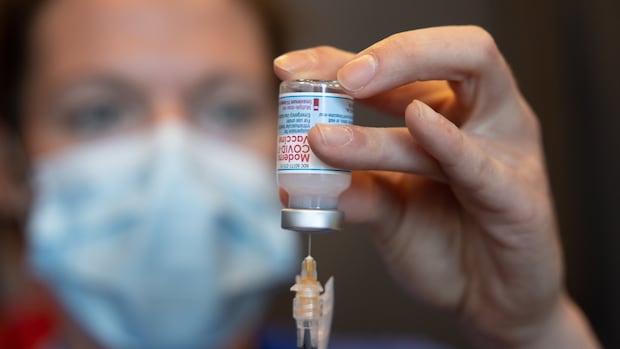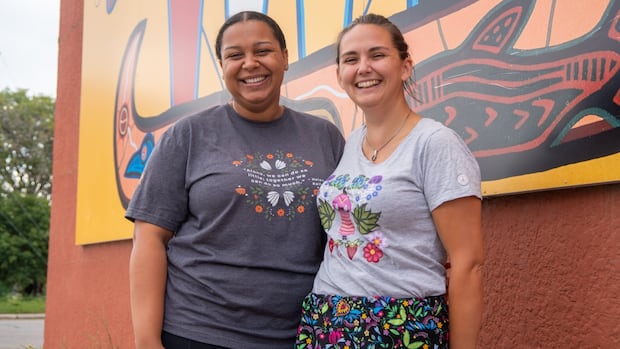About 44 per cent of men living in Canada die prematurely, according to a new report from the Movember Institute of Men’s Health.
The report defines premature mortality as deaths in men before age 75. The deaths from cancer, coronary heart disease, accidents, suicide and the opioid crisis include some causes that might have been prevented through vaccinations, lifestyle changes like quitting smoking or avoiding injuries.
In 2023, almost 75,000 males died prematurely, according to Statistics Canada.
“We’re here because too many men are dying too young from largely preventable causes,” Catherine Corriveau of Movember Canada said at a news conference on Parliament Hill on Thursday.
Suicide was the fourth leading cause of premature death in males after cancer, coronary heart disease and accidents. Three in four of the deaths by suicide in Canada were men, Corriveau said.
While the report looks at the health needs of men overall, the group noted those statistics were much worse for Indigenous men or men living in vulnerable communities.
Stigma, gender bias and low health literacy are long-standing barriers that often prevent men from seeking care until it’s too late, the report’s authors said. The impact extends to families, communities and the economy.
Fathers and sons learn together
Niigaan Sinclair, a co-author of the report and professor of Indigenous Studies at the University of Manitoba, said one solution is to have fathers and sons learn together. He gave an example during a recent fathers’ weekend where he spoke and saw boys and men who grew up without fathers or uncles learning skills like how to tie their shoes, do a puzzle or build a lodge together.
“That young man who has become a father, he too didn’t learn that because he wasn’t able to, because many of those ceremonies in his community were gutted and removed,” said Sinclair, who is also the son of the late Senator Murray Sinclair, the first Indigenous person appointed as a judge in Manitoba and chief commissioner of the Truth and Reconciliation Commission into residential schools.
“Making mistakes together, learning humility together, learning to laugh together at themselves, but then ultimately making something together that they could be proud of. That’s truly what I think a goal would be for any program that would teach healthy Indigenous masculinity or Indigenous manhood.”
Khan Bouba-Dalambaye and Sheldon Lewis, the co-facilitators of the Black Men’s Wellness program run by the Black Healing Centre, have been sharing their experiences with other Black men like Kerwins Saint-Jean, addressing a wide range of topics such as identity, dating, fatherhood and Black masculinity.
Those lessons could help men avoid outcomes like jail, hospitalization or premature death, Sinclair said, while also benefiting families and their communities.
The report also suggests embracing the power of sport to promote health.
Experiences with seeking help
The report’s authors also analyzed national mortality trends. Previously, the Canadian Institute for Health Information (CIHI) said deaths from preventable causes were twice that for men than women.
The Movember report included a nationally representative poll of more than 1,500 men on their experiences engaging with primary care. Only about 48 per cent of respondents said they felt actively listened to during a first health-care interaction.
“If they don’t feel listened to and if they don’t feel cared for, they might not show up again,” Corriveau said.

Dr. Vincent Agyapong, a professor and head of psychiatry at Dalhousie University, said he was surprised by that finding.
“It reflects that health-care providers need to listen more empathetically,” said Agyapong, who was not involved in the report and welcomed the authors’ multi-pronged approach to mental health that isn’t one-size-fits-all.
“It’s always very difficult for men to reach out and seek help,” Agyapong said.
Prioritize mental health literacy
When men do seek help, Agyapong said, it’s important that health-care providers are sensitive and focus on the main concern that brought the person in off the bat, instead of launching into a checklist of background questions.
Agyapong said schools and workplaces should prioritize mental health literacy, providing men with resources to recognize the signs and symptoms of mental disorders and know they are treatable with medications and psychological approaches.
Mental health promotion for men at risk will lead to more people seeking healthcare such as psychological help earlier on when they are distressed rather than trying to manage themselves or turning to alcohol and drugs, which can be risk factors themselves, Agyapong said.
Corriveau said Canada has an opportunity to address the challenges of health promotion by developing a national men’s health strategy to respond to their health-care needs. Australia and the U.K. have already done so.
If you or someone you know is struggling, here’s where to look for help:








